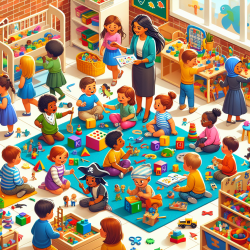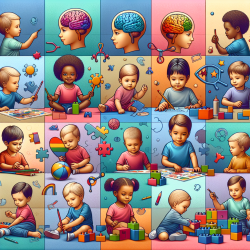In the world of early childhood education, play is not just a pastime; it is a powerful tool for learning and development. At the heart of this approach are Registered Early Childhood Educators (RECEs), who skillfully weave play into the fabric of education to create rich learning experiences for children.
The Essence of Play-Based Learning
Play-based learning is an educational approach that leverages the natural curiosity and creativity of children. It is grounded in the belief that children learn best when they are actively engaged in enjoyable and challenging play experiences. This method is not just a trend but a fundamental aspect of early childhood education, enshrined in professional standards and curriculum guidelines.
The Role of RECEs in Play-Based Learning
RECEs are at the forefront of implementing play-based learning. They bring a wealth of knowledge about child development and pedagogical theories to their practice. By co-constructing knowledge with children, families, and colleagues, RECEs plan and assess child-centered learning experiences that are both inquiry-based and playful.
- Free Play: This type of play is child-directed, voluntary, and driven by internal motivation. It allows children to explore their interests freely.
- Guided Play: In this approach, educators participate in play activities to extend learning opportunities while maintaining the playful essence.
The blend of free and guided play is central to Ontario's early learning curriculum documents. These guidelines encourage educators to engage with children in meaningful ways that do not focus on rote learning but rather on developing strategies for lifelong learning.
Creating Environments for Exploration
A crucial aspect of play-based learning is designing environments that inspire exploration. RECEs create inclusive spaces filled with carefully selected materials that invite children to engage in diverse play experiences. By observing children's interests and co-planning activities, educators can extend learning in ways that are both intentional and responsive.
The ability to communicate the value of play-based learning is also vital. RECEs often explain their approaches to families and colleagues, emphasizing the research-backed benefits of play for social, emotional, and cognitive development.
The Broader Impact of Play-Based Learning
The importance of play-based learning extends beyond individual classrooms. It is recognized nationally and internationally as a best practice for early childhood education. Canada's commitment to children's right to play, as outlined in the UN Convention on the Rights of the Child, underscores the significance of this approach.
For more information on play-based learning practices and guidelines, please follow this link.










